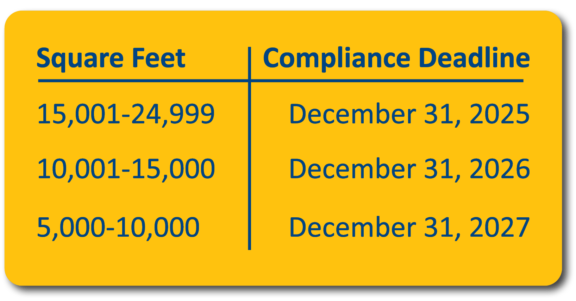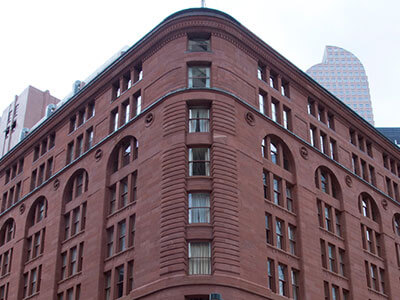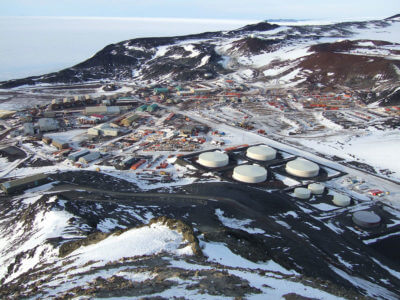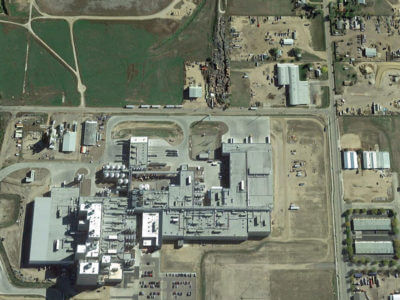What is Building Performance Colorado?
Building Performance Colorado (BPC), enacted by Colorado State Legislative House Bill HB21-1286, is a statewide program promoting energy efficiency and greenhouse gas (GHG) reduction in the building sector. BPC has an overarching mission to help Colorado building owners understand, track, and reduce their GHG production.
Who Does it Affect?
The BPC program applies to all owners of commercial, multifamily, and public buildings 50,000 square feet or more. Under the statute, owners must annually benchmark and report their whole-building energy utilization via the Energy Star Portfolio Manager®.
The Energize Denver (ED) program includes all buildings 25,000 square feet and above located within the city of Denver.
How is Energize Denver Different from BPC?
ED is a Denver-specific ordinance enacted by the Denver City Council on November 22, 2021, that implements an enforceable building performance policy with the goal of achieving net zero energy by 2040. ED has mandated targeted energy use intensity (EUI) performance reduction evaluations in 2024 and 2027 based on a building’s previously reported 2019 Energy Star Portfolio Manager® baseline data. A final EUI reduction evaluation will be completed in 2030.
How do you Comply?
Building owners comply with both mandates by annually submitting their benchmarking report in Energy Star Portfolio Manager® and paying the $100 state fee before December 1st, 2022 (deadline is July 1st, 2023, for Energize Denver participants). Public buildings are exempt from the $100 fee. A waiver may also be submitted for qualifying buildings.
What is Benchmarking?
Benchmarking is the measurement and tracking of a building’s energy use to better understand energy performance historically and comparatively amongst similar structures. The required benchmarking report will consist of the previous year’s 12-month whole-building energy usage (electricity, natural gas, district steam, district hot and chilled water, solar, wind, etc.).
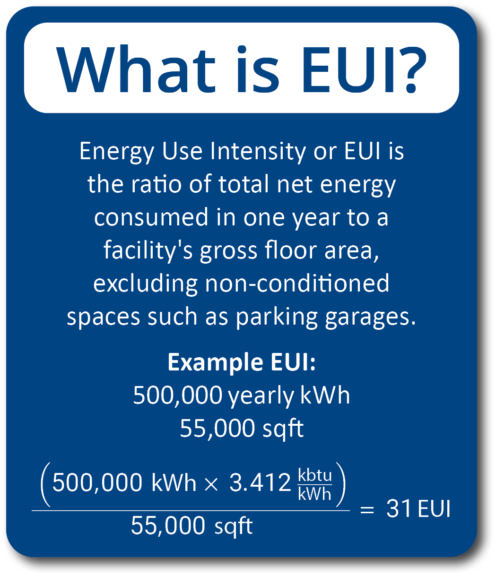 What is EUI?
What is EUI?
Energy Use Intensity, or EUI, is the ratio of total net energy consumed in one year to a facility’s gross floor area, excluding non-conditioned spaces such as parking garages.
What is Next for BPC?
Rules for building performance standards will be established and published by the Colorado Air Quality Control Commission by June 1, 2023. The goal of these rules will be to meet sector-wide GHG reduction targets of 7% by 2026 and 20% by 2030 based on reported 2021 benchmarking data.
Important Dates
| Date | Description | Program |
| September 6, 2021 | Building Performance Colorado passes | BPC |
| March 2022 | The city sends building owners notifications of interim and final targets | ED |
| December 1, 2022 | BPC first benchmarking report deadline | BPC |
| January 1, 2023 | Ease in heat pump permitting restrictions | ED |
| June 1, 2023 | Annual benchmarking report deadline | ED |
| June 1, 2024 | 1st target EUI reduction evaluation | ED |
| Jan 1, 2025 | Heat pump replacement requirement – easy-to-electrify | ED |
| December 2026 | 7% GHG reduction based on the 2021 baseline | BPC |
| June 1, 2027 | 2nd target EUI reduction evaluation | ED |
| June 1, 2027 | Heat pump replacement requirement – hard-to-electrify | ED |
| June 1, 2030 | Final target EUI reduction evaluation | ED |
| December 2030 | 20% GHG reduction based on the 2021 baseline | BPC |
Program Comparison
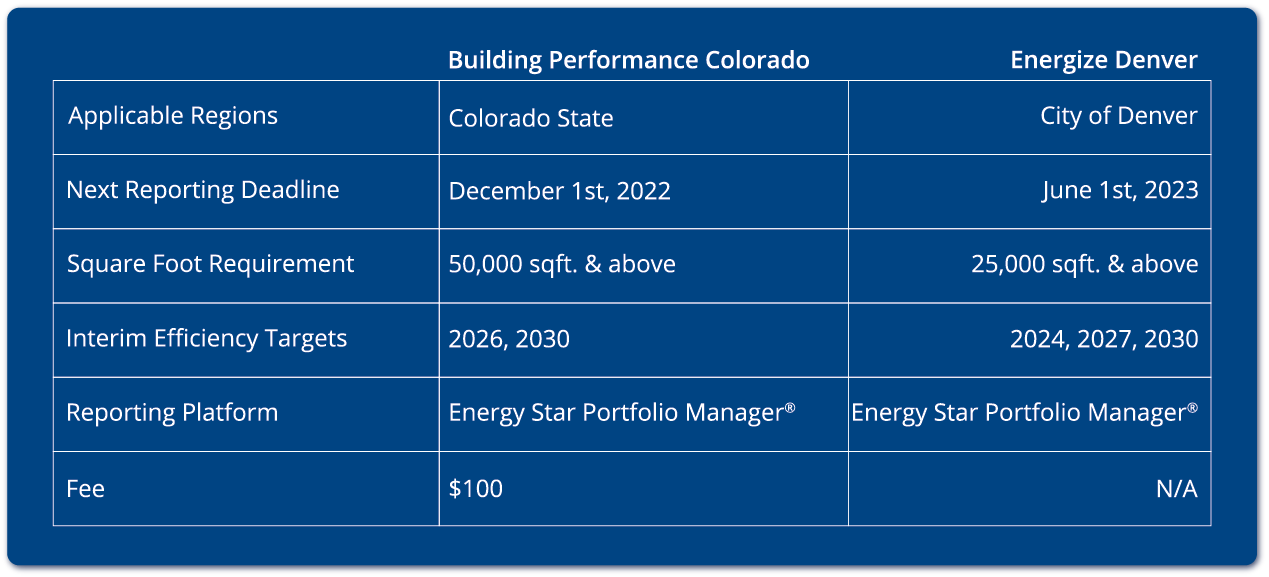
How Can ATS Help?
ATS has the know-how to be your building efficiency advocate and we can provide Energy Star Portfolio Manager® benchmarking assistance. ATS also has the expertise to help identify, plan, and implement future energy efficiency improvements ensuring the changes made are the most cost-effective and substantial for your facility.
Contact an ATS representative at (303) 799-1887 today to discuss your building energy efficiency needs.
Where Can You Find More Information?
Visit the Building Performance Colorado website for more details and resources:
https://www.buildingperformanceco.com/overview
Visit the Energize Denver Hub website for more details and resources:
https://www.denvergov.org/Government/Agencies-Departments-Offices/Agencies-Departments-Offices-Directory/Climate-Action-Sustainability-Resiliency/High-Performance-Buildings-and-Homes/Energize-Denver-Hub
Additional Energize Denver FAQs
Do I need to send the benchmarking report to the State too?
If you benchmark in Denver, the city will pass along the submitted benchmarking report to the State, but you must pay the $100 fee direct to Colorado to be considered compliant at the state level. Public buildings are exempt from the $100 fee.
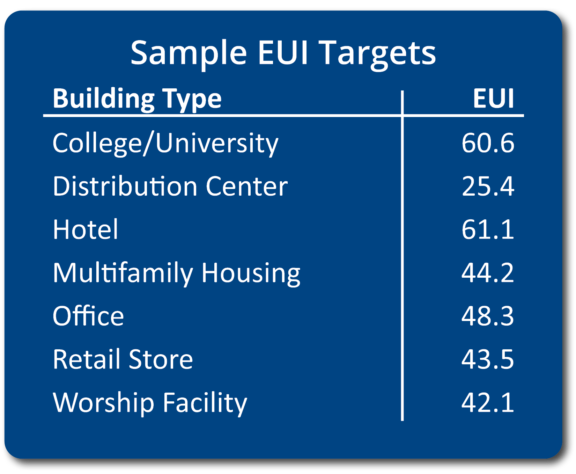 Are all building types designated the same EUI target?
Are all building types designated the same EUI target?
Due to the unique energy intensity requirements of different facility types, EUI targets have been designated within defined operational categories. There are 60 different building types with their own EUI targets.
How do I know what the energy performance target is for my building?
Final 2030 building-type EUI targets have been published. Building owners should have been notified of interim targets directly by mail or email by March 2022.
What if I can’t meet the required performance targets?
Waivers from meeting a facility target EUI may be submitted for review due to the following reasons:
Different compliance timeline – capital improvements are more cost-effective if completion is deferred until the end of system life
Under-resourced building – Due to limited capital resources, the timeline can be adjusted to accommodate building refinancing, etc.
Target adjustment – Building target EUI may be adjusted due to substantial changes in building usage/occupation habits (i.e., new data center tenant)
Prescriptive – Owners may adopt prescribed electrification measures (i.e., heating and lighting equipment replacement) in lieu of the 2024 and 2027 EUI reduction evaluations. Final 2030 EUI target measures will still be required to be met.
Manufacturing/Agricultural – EUI manufacturing and agricultural facilities requirements are still undefined. This designation only applies to a facility where the majority of energy is utilized for manufacturing/agricultural activities. Distribution centers and warehouses do not apply.
What if my building is less than 25,000 square feet?
Buildings between 5,000 and 24,999 square feet will be required to install 90% efficient LED lights or install solar panels/purchase off-site solar energy.

